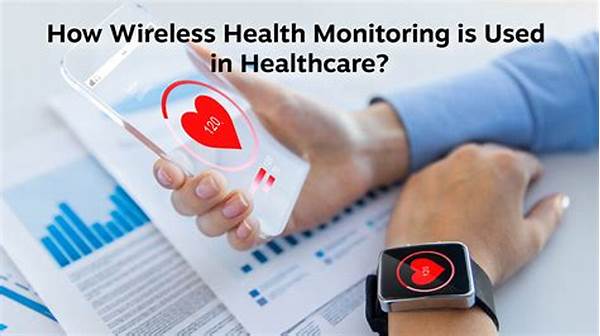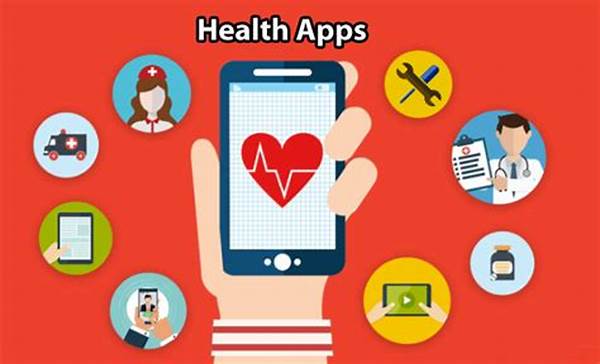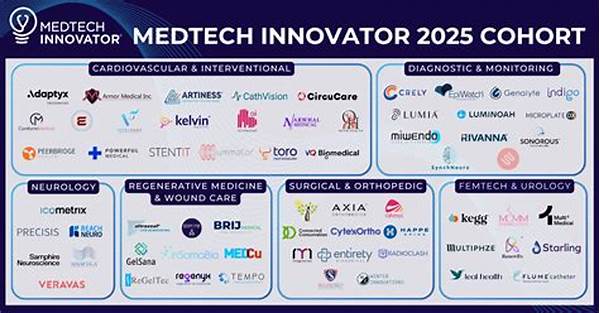In the dim lighting of his cozy living room, John sat slumped on his couch, feeling overwhelmed by the ticking reminders of medication doses and doctor’s appointments that flagged his calendar. A survivor of a chronic illness, he found the medical world dizzying and impersonal until a friend introduced him to a simple solution: the power of mobile technology. With a mobile app designed specifically for managing chronic diseases, John discovered a lifeline he’d desperately needed. No longer at the mercy of missed appointments or untracked symptoms, his smartphone became his health’s steadfast ally.
Embracing Technology for Health Management
By integrating mobile apps into daily routines, individuals like John can seamlessly manage chronic diseases. These applications are engineered to keep track of medication schedules with persistent reminders, ensuring no dose is forgotten. Their features extend to organizing medical appointments, providing timely alerts so that each visit is anticipated. For patients, they illuminate healthcare pathways previously obscured by complexity, turning tangled webs into streamlined journeys.
Moreover, these apps offer an intuitive interface for logging symptoms, transforming passive watching into active engagement with one’s health. With every input, a nuanced story of health emerges, accessible to healthcare providers who can adjust treatments with precision. For those burdened by the weight of chronic illness, apps become a tool of empowerment. They invite users to take control, providing data at their fingertips and peace in their hearts. Mobile technology’s adaptability assists in bridging the gap between patients and their care, fuelled by something as simple as a personal device.
Building Reliability Through Features
1. Medication Adherence: Mobile apps aid in managing chronic diseases by providing structured medication schedules, reducing the risk of missed doses.
2. Symptom Tracking: Patients can log daily symptoms in a structured manner, creating a comprehensive health record essential for effective disease management.
3. Appointment Reminders: The apps’ capability to remind users of upcoming medical consultations ensures consistent engagement with healthcare professionals.
4. Data Sharing: Sharing app-generated health data with care teams enhances communication and personalizes treatment plans.
5. Educational Resources: Integrating educational content within these apps supports users in understanding their illness, promoting informed healthcare decisions.
Personal Stories of Success
Emma, a spirited young woman living with diabetes, found solace in learning how to use mobile apps to manage chronic diseases. Her path, once littered with unpredictable sugar drops and spikes, transformed through her smartphone’s vigilant alert system. Each morning, Emma was greeted with a prompt to check her blood glucose levels, a gentle reminder guiding her through the ebb and flow of daily life. The charts and statistics these apps generated provided a visual narrative of her body’s needs, guiding her decisions about meals and activities.
Another story is that of Marcus, whose battle with hypertension had been a silent struggle. Through a simple touch, he recorded his blood pressure readings within the app, charting patterns that unraveled the mystery of his fluctuating pressure. With data now at his fingertips, Marcus found it easier to converse with his physician. His own experience illuminated the critical importance of how to use mobile apps to manage chronic diseases effectively, making him an advocate for tech-driven healthcare accommodations. With each tap and scroll, Emma and Marcus reclaimed ownership of their health narratives.
Overcoming Challenges in App Utilization
1. Digital Literacy: Educating users about how to use mobile apps to manage chronic diseases becomes crucial, ensuring that technological proficiency does not become a barrier.
2. Privacy Concerns: Guaranteeing confidentiality of sensitive health data while using these apps is paramount for maintaining patient trust.
3. User Engagement: Designing apps that intuitively engage users, preventing friction in usage, supports sustained health management.
4. Different Needs: Apps tailored to specific diseases address varied patient requirements, ensuring relevant and effective features.
5. Regular Updates: Keeping app content and functionality current maintains relevance in the fast-evolving field of healthcare.
6. Feedback Mechanism: Encouraging user feedback can drive enhancements, tailoring the app experience to real user needs.
7. Integration Challenges: Ensuring smooth integration with healthcare provider systems is essential for efficient data exchange.
8. Cost Factors: Accessibility to affordable solutions ensures wider adoption across diverse socioeconomic groups.
9. Language and Culture: Apps should accommodate diverse language preferences and cultural nuances for global accessibility.
10. Empowerment Through Information: Providing users with knowledge amplifies their agency over their health conditions.
A Future Guided by Technology
As the sun sets on yet another bustling cityscape, millions are embracing a new era in healthcare. Picture Sarah, a technology enthusiast who understands how to use mobile apps to manage chronic diseases. Her phone’s gentle chime alerts her to the evening’s health ritual. Tapping into the app, Sarah device logs her day’s achievements and challenges, a task no longer daunting but familiar and simple. Each entry is a victory against a former existence of chaotic health management, a testament to evolving personal resilience supported by technology.
The fabric of contemporary healthcare is increasingly interwoven with digital avenues, turning medical narratives personal and vibrant. Families and caregivers are drawn closer through shared access to health data, a unified effort towards holistic well-being. As developers refine these apps, they move towards creating interconnected ecosystems where patients like Sarah navigate seamlessly, their medical journeys guided by innovation and understanding. This embrace of technology is not merely a shift but a new paradigm, shaping futures where chronic disease is a managed chapter rather than a defining sentence.
Concluding Thoughts on Empowerment
For many, learning how to use mobile apps to manage chronic diseases has opened doors to empowerment and control, reshaping health care landscapes. Through the narrative of our protagonists, it becomes irrefutably clear that these tools are not just gadgets but companions on their health journey. With every notification, reminder, and data point, these apps translate the language of the body into comprehensible insights, providing clarity where once only confusion reigned.
Mobile apps represent a harmonious melding of technological ingenuity and compassionate health care, delivering solutions that resonate deeply within the personal realms of those living with chronic diseases. As stories continue to unfold, each marked by small victories and hard-earned peace, it remains evident that technology’s role is pivotal. As we look to the future, these digital innovations promise empowerment, transforming challenges into narratives of triumph for the millions who navigate the delicate intricacies of chronic illness.
Summary: A Pathway to a Healthier Life
In the poignant narrative of achieving better health outcomes, learning how to use mobile apps to manage chronic diseases stands as a beacon of hope for many like John, Emma, and Marcus. These stories of transformation shed light on the pervasive impact of technology in personal healthcare management. By harnessing mobile apps, these individuals have not only redefined their medical journeys but have carved pathways to more informed and active roles in their own well-being.
The applications’ capacity to simplify complex medical routines, foster real-time engagement, and bridge communication gaps underscores their value. Personal hand-held devices, once mere communicative tools, have emerged as catalysts for health consciousness and proactive management. For countless patients, the journey to mastering the intricacies of how to use mobile apps to manage chronic diseases is gradually paving the way to holistic empowerment, transforming once daunting health challenges into manageable life facets. As such, the alliance between technology and healthcare promises to redefine patient experiences and herald a new dawn in chronic disease management.






